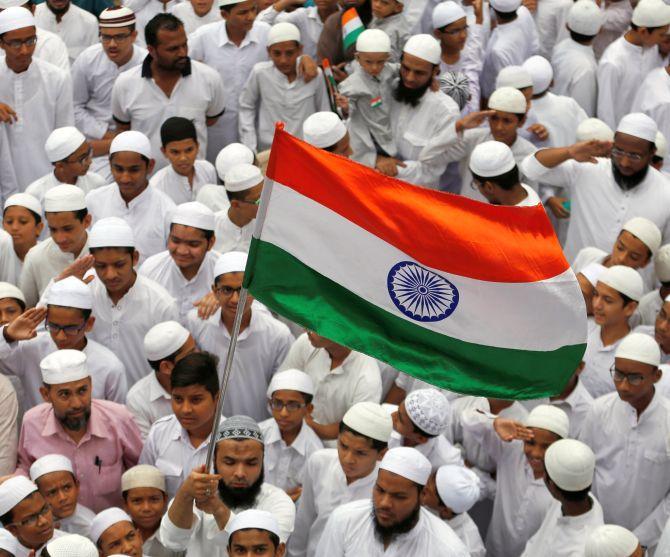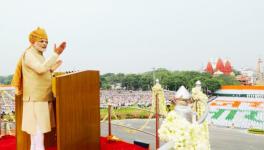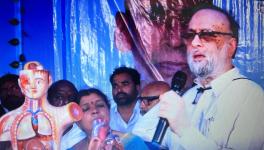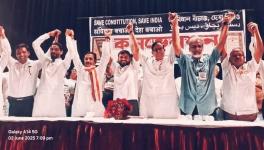Revisiting Sachar Report Amid PM Modi’s ‘Muslim Appeasement’ Charge Against Congress

Representational Image.
In the ongoing election season, a serious debate has started after Prime Minister Narendra Modi began accusing the main opposition party, Congress, of Muslim appeasement and attacking the party of trying to “reallocate resources to Muslims”. It is well known that the very existence and electoral victories of Modi’s party, the Bharatiya Janata Party (BJP), depend on creating a sharp divide on communal lines and spewing hatred in the majority Hindu population against Muslims.
In his election speeches, Modi has also falsely accused the principle Opposition party of trying to “steal” mangalasutras and gold ornaments from Hindu women and “redistribute” to Muslims. He has even degraded the stature of the Prime Minister’s seat by accusing the Congress, if it comes to power, of changing the Constitution to “take away” reservations in education and jobs, guaranteed to Dalits and OBCs, and give to Muslims.
In this context, it is essential to examine the socio, economic, educational and employment status of Muslims in the country. Instead of addressing core issues of unemployment, shrinking access to education, health and rising inequalities, the ruling BJP is diverting attention by dividing the poor and fanning hostilities between Muslims and non-Muslims. At the same time, it is deplorable that the bulk of community resources (public sector units, hospitals, mines, forests, ports and airports) are being generously gifted to a handful of crony capitalists.
Recall that in 2005, the then Manmohan Singh-led United Progressive Alliance government had appointed a seven- member committee headed by Justice (Retd) Rajinder Sachar to report on the status of Muslims in the society. The committee was asked to provide information on the prevailing socio-economic and educational conditions of Muslims and suggest remedial measures.
The Sachar Committee’s 403-page report was submitted in November 2006 and tabled in the Lok Sabha on November 30, 2006. It was prepared on the basis of data received from diverse sources from the Central and state governments. For the first time, the committee revealed interesting and shocking statistics on the socio-economic status of Muslims in India. The statistics provided by report have been updated till 2020, but the situation has not improved much.
Left Behind
India has around 200 million Muslims, constituting 14.42% of population (Census 2011). While Muslims make up more than one-sixth of the total population, only 12% are enrolled in schools and mere 10.7% in higher educational institutions.
The AISHE (All India Survey of Higher Education) district- wise survey -2020-21, presents a dismal picture of Muslims. While enrolment of Scheduled Castes, Scheduled Tribes and Other Backward Classes in higher educational institutions improved by 4.2%, 11.9% and 4%, respectively in 2019-20, the Muslim community’s enrolment declined by 8%.
Alarmingly, in states like Assam, Jammu & Kashmir and Bihar, the dropout rates increased by nearly 8% in educational institutions, especially at the school level. Interestingly, Kerala is the only state that has bucked the trend, where 43% Muslims are enrolled in higher educational institutions.
The findings of AISHE survey were revealed five months after the Ministry of Minority Affairs scrapped the Maulana Azad fellowships for Muslim students and the then BJP-led Karnataka government withdrew 4% reservation for Muslims before Assembly elections in the state.
Similarly, nearly 15.6% of urban Muslims are employed in regular salaried jobs (against 23.3% non-Muslims in 2019-20). The proportion of Muslims employed as regular salaried persons in the public sector stood at 6.75% to 6.87% between 2009 and 2020.
As per an Oxfam report in 2022, rural Muslim unemployment was at a high of 31.4%. While regular salaried non-Muslims in urban areas earn an average of Rs 20,346 per month, their Muslim counterparts earn Rs 13,672/month. Most of the Muslims in urban areas are engaged in self-employment compared with other communities. Self-employed Muslims earn Rs 11,421/month on average, while other non-Muslim communities earn Rs 15,878/month.
Although these surveys reveal shocking statistics on the plight of Muslims in India, the findings and recommendations of the Sachar committee report had become a topic of sharp debate in political, social and intellectual circles of the country. Later, the report was conveniently shelved, with key political parties choosing to ignore the sad state of Muslims in their election manifestos.
Flaring Hostilities
Since its birth in the early last century, the Hindu Mahasabha and its leaders had started propagating Hindu nationalism and creating hostilities between Hindus and Muslims. Unlike other secular national parties, the Hindu Mahasabha and later the Rashtriya Swayamsevak Sangh (RSS) raised the idea of two separate nations for Hindus and Muslims, thus dividing a united Hindustan. They supported the ‘divide and rule’ policy followed by the British colonial rulers to suppress India’s freedom movement. The Hindu Mahasabha, while projecting itself as an arch rival of the Muslim League, actively supported Mohd Ali Jinnah’s plan to divide united India.
The BJP, the political offshoot of RSS, intensified pursuing the Hindu nationalist agenda, more so since the election of Modi to power in 2014. This became more intensive after Modi’s re-election in the 2019 Lok Sabha elections after winning a brute majority. The Modi government started pushing controversial state policies, ignoring the rights, religious freedom, and tried to disenfranchised millions of Muslims. The introduction of the controversial Citizenship Amendment Act is a clear example of its discriminatory policies against Muslims.
Our Constitution enshrines egalitarian principles of social equality, secularism, religious freedom, non-discrimination. It also provides equal opportunities to all citizens, away from religious discrimination, in achieving economic freedom. Hence, it is time to fight back the ulterior designs of Hindu nationalists to create divisions Muslims and Hindu, especially among the poor, to keep them away from leading a respectful life.
The writer is retired Principal Scientist & Head, Genomics, Indian Council for Agricultural Research, New Delhi. The views are personal.
Get the latest reports & analysis with people's perspective on Protests, movements & deep analytical videos, discussions of the current affairs in your Telegram app. Subscribe to NewsClick's Telegram channel & get Real-Time updates on stories, as they get published on our website.
























